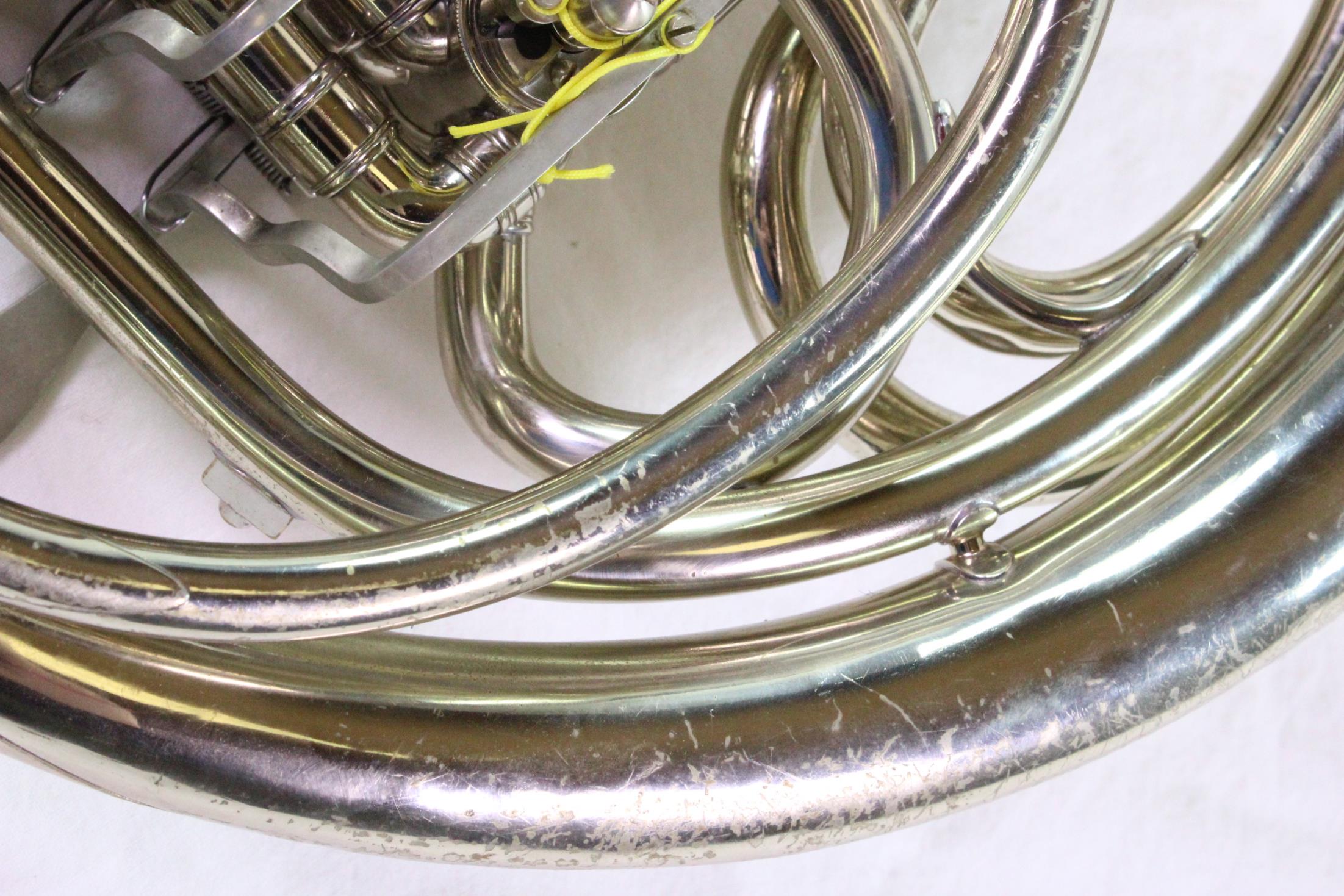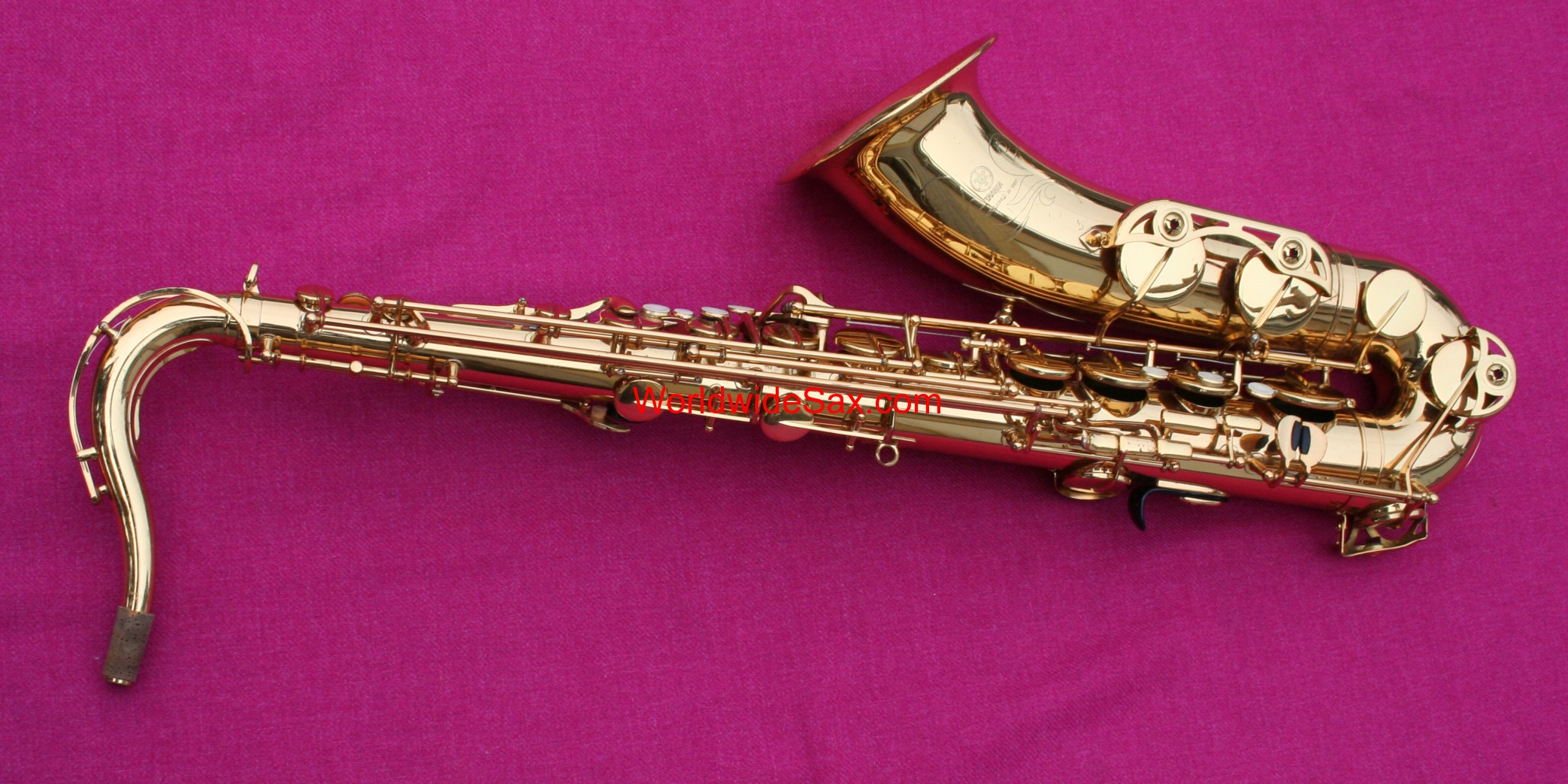
Yamaha Saxophones. Yamaha Introduction Page. 61, 62 and 675. There are also no extant serial number charts, even for dealers.
Vito is a brand name of Leblanc which was started in 1951.
History[edit]
Vito is a brand name for Leblanc USA, now part of Conn-Selmer USA.The Vito name was used for student through professional (Yanagisawa baritone saxophone) instruments. Leblanc USA was formed in 1946 by Vito Pascucci,and the French woodwind manufacturer, G. Leblanc Cie of France. To meet high demand, Leblanc USAstarted to manufacture clarinets in the US from plastic bodies and French keys. Eventually all of the partswere made in the US. These student clarinets were named 'Vito'.
There were also Vito saxes and flutes. Some saxes may have been assembled in the USA, but they were basically of foreign manufacturer. This author has no information concerning where the flutes were manufactured.
Addendum: Many, if not all, Vito flutes were 'stencil' instruments manufactured in Japan by Yamaha. They were roughly the equivalent of a Yamaha YFL-200 series student instrument.
The following information was provided by the original author of this post concerning the origin of Vito saxes or component parts.
- Beaugnier of Paris, France - Beaugnier made saxophones as Beaugnier and stencils labeled Leblanc, Vito and Noblet for the French market and U.S. export and also Selmer for U.K. export.
- Yanagisawa of Japan - (VSP Soprano, Alto and Baritone Saxophones)
- Yamaha of Japan (7131 model Alto and also Tenor Saxophones)
- KHS/Jupiter brand (7133 model Alto and Tenor Saxophones).
Serial Numbers[edit]
Vito Alto Saxophone Model 7131 Japan Stamped Serial Numbers.
These serial numbers ignore the leading zeros at the start of the serial numbers.
- 1970
- 1-500
- 1971
- 501-2155
- 1972
- 2156-3529
- 1973
- 3530-4421
- 1974
- 4422-12000
- 1975
- 12001-25603
- 1976
- 25604-30827
- 1977
- 30828-33947
- 1978
- 33948-38844
- 1979
- 38845-42434
- 1980
- 42435-47975
- 1981
- 47976-52455
- 1982
- 52456-58306
- 1983
- 58307-62177
- 1984
- 62178-68524
- 1985
- 68525-72535
- 1986
- 72536-78579
- 1987
- 78580-85091
- 1988
- 85092-89758
- 1989
- 89759-501000
- 1990
- 501098-510332
- 1991
- 510333-511518
- 1992
- 511519-515800
- 1993
- 515801-519845
- 1994
- 519846-526925
- 1995
- 526926-533097
- 1996
- 533098-537807
- 1997
- 537808-552998
- 1998
- 552999-560613
- 1999
- 560614-575843
- 2000
- 575842-587455
- 2001
- 587456-624567
- 2002
- 624568-654084
Vito Saxophone Models[edit]
- Vito 7133SS Soprano Sax
- Vito 7131R(K) Alto Sax
- Vito 7133 Alto Sax
- Vito 7131T(K) Tenor Sax
- Vito 7133T Tenor Sax
- Vito 7190BA Baritone Sax
- Vito 7136 Alto Sax
- Vito 7140 Alto Sax
External links[edit]
Since 1887, when it began producing reed organs, the Yamaha Corporation in Japan (then Nippon Gakki Co., Ltd.) has grown to become the world’s largest manufacturer of a full line of musical instruments, and a leading producer of audio/visual products, semiconductors and other computer related products, sporting goods, home appliances and furniture, specialty metals, machine tools, and industrial robots.
Since Yamaha Music Foundation was established in 1966, it has generated a wide range of music activities throughout global society, including Yamaha music schools, and the Junior Original Concert. Strong commitment to promote and support music education and popularization is one of the most significant elements to distinguish Yamaha from its competitors (reference: http://www.yamaha.com/aboutyamaha.asp).
|
DETAILED HISTORY:http://www.yamaha.com/aboutyamaha.asp
CORPORATE WEBSITES:http://www.yamaha.com, http://www.global.yamaha.com, http://www.yamaha.co.jp.
Model Notation
Most Yamaha models are in the form of “YAS-21”. Simple: Yamaha Alto Sax – Model 21“. Below is a little chart, where “x” means “a number”.
 Watch Rambo IV on 123movies: Vietnam veteran John Rambo has survived many harrowing ordeals in his lifetime and has since withdrawn into a simple and secluded existence in Thailand, where he spends his time capturing snakes for local entertainers, and chauffeuring locals in his old PT boat. Even though he is looking to avoid trouble, trouble has a way of finding him: a group of Christian human.
Watch Rambo IV on 123movies: Vietnam veteran John Rambo has survived many harrowing ordeals in his lifetime and has since withdrawn into a simple and secluded existence in Thailand, where he spends his time capturing snakes for local entertainers, and chauffeuring locals in his old PT boat. Even though he is looking to avoid trouble, trouble has a way of finding him: a group of Christian human.
- 2x = Student model (21, 23, 25). 25 is identical to 23, but it has an altissimo F# key.
- 275 = Student model. Improved version of the 2x models.
- 32 = Intermediate model, virtually identical to 52 model.
- 475 = Intermediate model, updated version of 52 model.
- 52 = Intermediate model.
- 34 = Advanced intermediate model (improved neck).
- 575 = Advanced intermediate model (improved neck and bell).
- 6x = Machine-made professional model (61, 62, 62II).
- 675 = Professional soprano.
- 82 = Custom professional.
- 8×5 = Custom professional (855, 875).
- YAS01M/Q/MQ: A limited edition Indonesian-made model. Student quality.
- AD01 (Advantage): Slightly reworked model 23s for the education market.
Serial Number Information
I’m sorry; I forgot to include this on my first draft.
Yamaha serial numbers, like Yanagisawa’s, are not necessarily sequential. There are also no extant serial number charts, even for dealers. If you want to know when your Yamaha was made, the only completely accurate answer is from Yamaha, themselves. You should be able to contact them through their global website.
However, there is an extant serial number chart for the Vito 7131RK, which is the Vito-stenciled Yamaha YAS-25. This chart can give you some information.
Further, you could look at the Yamaha Parts List, as that does have some serial number ranges listed.
Errata
- I am unaware of any Yamaha sopranino (“Eb soprano”, if you prefer) or Bb bass saxophones. They may have had a prototype at one point, but I have never seen one.
- I may include some of the Nippon Gakki instruments if I can find them. They’re fairly uncommon, but earlier ones look like copies of various things, really late ones (like this one) are virtually identical to the Yamaha 61 horns and may actually have been built BY Yamaha before Yamaha purchased Nikkan Gakki.I also found this page, which has some shots of the Nikkan Imperial AND an MP3 of it. That’s kinda kewl.
- “Nikkan” was also a name that was used on some early Yanagisawa brasswinds. There doesn’t appear to be any connection with these brasswinds and Yamaha.
Linkies
There are a lot of absolutely superb links to Yamaha stuff and there are some great things to be found on the Yamaha websites. I’m going to try to list some of the great linkies, below:
